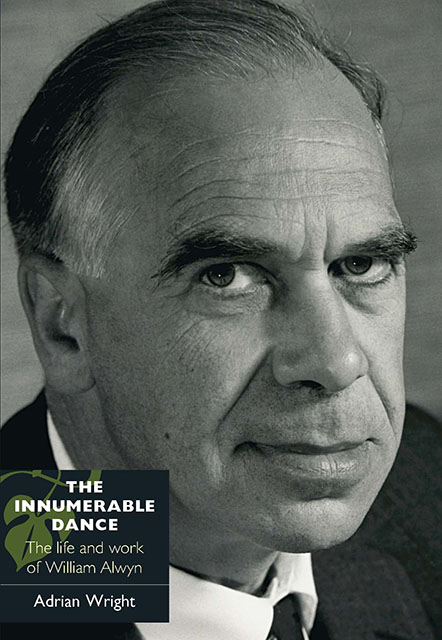Book contents
- Frontmatter
- Contents
- Illustrations
- Preface and Acknowledgements
- Introduction
- 1 Early Closing
- 2 The Music of Northampton
- 3 A Number of Scotsmen
- 4 Olive
- 5 Union and Exile
- 6 A Purpose for Cinema
- 7 A War of his Own
- 8 Is Your Journey Really Necessary?
- 9 A Coming British Woman Composer
- 10 Towards a Festival
- 11 Questions of Inspiration
- 13 The Late Romantic
- 14 E-Day
- 15 Symphonic Reflections
- 16 Soundless Music
- 17 The Other Suffolk Composer
- 18 The Blythburgh Operas
- 19 The Stillness
- 20 Living and Learning
- 21 Precious Toy
- Epilogue
- Notes
- List of Alwyn’s Works
- Discography
- Bibliography
- General Index
- Index of Alwyn’s Works
3 - A Number of Scotsmen
Published online by Cambridge University Press: 10 March 2023
- Frontmatter
- Contents
- Illustrations
- Preface and Acknowledgements
- Introduction
- 1 Early Closing
- 2 The Music of Northampton
- 3 A Number of Scotsmen
- 4 Olive
- 5 Union and Exile
- 6 A Purpose for Cinema
- 7 A War of his Own
- 8 Is Your Journey Really Necessary?
- 9 A Coming British Woman Composer
- 10 Towards a Festival
- 11 Questions of Inspiration
- 13 The Late Romantic
- 14 E-Day
- 15 Symphonic Reflections
- 16 Soundless Music
- 17 The Other Suffolk Composer
- 18 The Blythburgh Operas
- 19 The Stillness
- 20 Living and Learning
- 21 Precious Toy
- Epilogue
- Notes
- List of Alwyn’s Works
- Discography
- Bibliography
- General Index
- Index of Alwyn’s Works
Summary
I went to take the entrance exam. Everything seemed so large. That was my main impression. I wondered how one made one’s way in so large a place. Northampton, in spite of its factories, was just a big village. Everybody knew everybody. And going to London was going to desolation. I used to commute from Northampton up to Euston Station and then take a bus or walk along the Euston Road to the Marylebone Road and straight along to the Academy, which was just by Regents Park. The train journey was just over an hour … My father paid for the first term that I was there …
Alwyn was only a commuting student, making the journey up to London twice a week for classes, but the future was promising, especially at a time when there was no restriction as to how long a student might study at the Royal Academy. The student records at the Academy are not particularly informative, but they give the skeleton of the young student’s progress. The dates that Alwyn himself attached to various events in his life are often wrong, but the archive shows that, recommended for admission by R. W. Strickland, he began at the Academy in the Michaelmas Term of September 1920. His principal study would be Flute under Daniel S. Wood (brother of the composer Haydn Wood), with Piano as his second subject under Edward Morton and, subsequently, Leo Livins. Under ‘Elements’ Alwyn chose Harmony under Russell Chester, followed by John B. McEwen and Arthur Hinton. Alwyn recalled that ‘my theoretic instruction was deputed to a sub-professor of Harmony and Counterpoint (no one at that time, 1921, was supposed to be capable of actually composing music unless he had first been thoroughly grounded in Thorough-Bass)’. In 1922 he received the Bronze Medal for Sight-Singing, and an Honourable Mention from the Examiners under ‘Secondary Studies’ for pianoforte, as well as the Silver Medal for Flute (no matter that he was the only candidate) and the Ross Scholarship. The following year he won a Certificate of Merit (the highest award of the Academy) for Flute, and the Silver Medal for Sight-Singing and Reading. In 1924 he was the recipient of the Oliveria Prescott Gift for Flute.
- Type
- Chapter
- Information
- The Innumerable DanceThe Life and Work of William Alwyn, pp. 22 - 34Publisher: Boydell & BrewerPrint publication year: 2008



